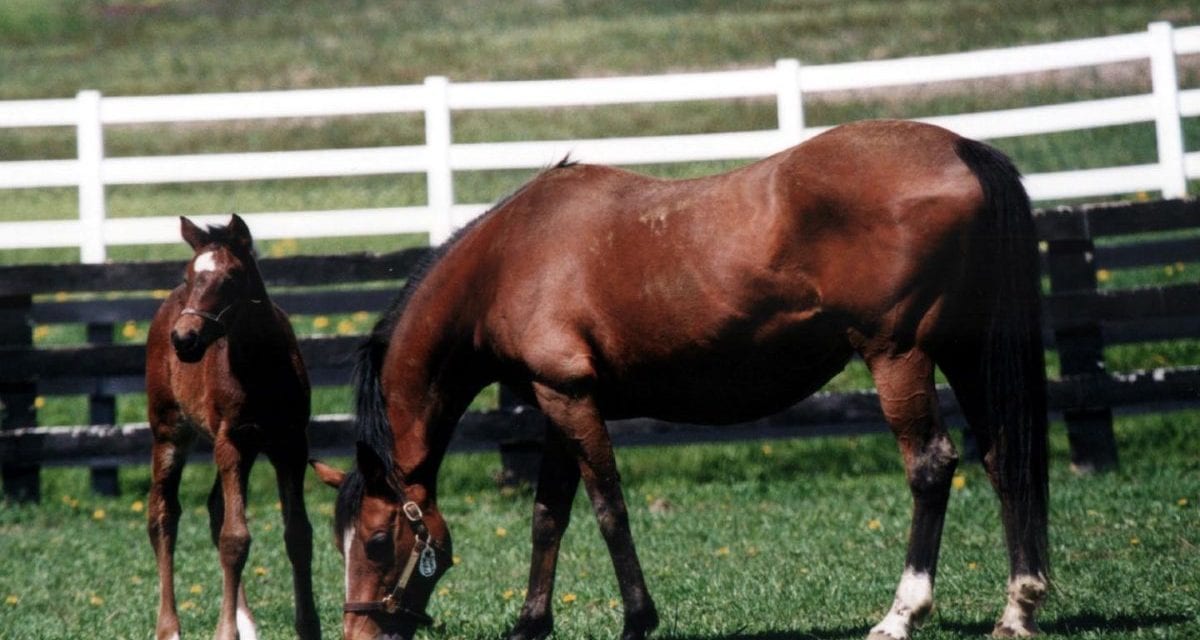by Teresa Genaro
On the racing calendar, June represents something of a breather. The relentless push to the Triple Crown wraps up early in the month, and the summer racing season is still a few weeks away. While races continue across the country, the pressure of spring racing seems, at least, to have abated a little.
Unless you’re in Pennsylvania, in which case you’re gearing up for what’s become an annual financial fight.
Earlier this year, Governor Tom Corbett introduced legislation that would divert slots money from the Race Horse Development Fund to the General Fund and a variety of agricultural programs. Corbett proposed similar action last year, when he wanted to divert $72 million from the racing and breeding industries; this year, they are facing the possibility of losing $31 million.
The budget will need to be approved this week, before the beginning of the fiscal year on July 1.
To combat the continued threat of lost revenue, six horsemen’s groups have joined forces as the Pennsylvania Equine Coalition to try to prevent the further loss of slots money. Those groups are Pennsylvania Harness Horsemen’s Association, the Pennsylvania Thoroughbred Horsemen’s Association, the Standardbred Breeders Association of Pennsylvania, the Pennsylvania Horse Breeders Association, the Meadows Standardbred Owners Association, and the Pennsylvania Horsemen’s Benevolent & Protective Association.
The promise of the commonwealth’s racing and breeding industries may never have been higher than in 2004. That was the year that Smarty Jones, bred, owned, and trained in Pennsylvania, headed to the Belmont Stakes undefeated, missing winning the Triple Crown by a length. 2004 was also the year of Act 71, the legislation that created the Pennsylvania Gaming Control Board and ushered in the slots era in the Keystone State.
According to Pete Peterson of the Pennsylvania Equine Coalition, 18% of slots revenue at the commonwealth’s racetrack casinos is slotted for the Race Horse Development Fund. While all the casinos in Pennsylvania—those at tracks and those that stand alone—contribute to the fund, the percentage is based solely on the revenue at track casinos. The RHDF receives no money as a result of table games revenue.
As a result of the Coalition’s efforts last year, the government’s proposed diversion was reduced from $72 million to $5 million, considered a success by Jeb Hannum, the executive secretary of the Pennsylvania Horse Breeders Association, and he’s cautiously optimistic that the horsemen will prevail again this year.
“Our position is that all that money should go to the RHDF as intended,” said Hannum recently. “Our program, especially on the breeding side, is undermined when the government threatens to take money and then does so.”
Hannum pointed out that breeding horses takes long-term planning, with breeders requiring two or three years, from the time a horse is bred to the time it’s sold or gets to the races, before they can hope to see a return on their investment.
“If the fund is unstable,” Hannum said, “breeders might decide not to breed or to go to another state.”
In addition to the proposed legislation, the Pennsylvania racing industry is facing a decline in slots revenue, as competition for those gambling dollars has increased in neighboring states like Maryland, Ohio, and New York.
Hannum and Peterson are employing a variety of strategies to try to convince their legislators that the commonwealth is best served by leaving intact the slots subsidy. An eight-minute video, below, focusing on the importance of the horse industry to the Pennsylvania economy was distributed to all members of the legislature. Law-makers have been invited to tour breeding farms and racetracks, and representatives from the industry have met with legislators.
“It’s a constant process of education,” said Hannum.
Funded by the individual member organization, the Coalition has focused on how the racing and breeding industries have created jobs in the commonwealth and improved the quality of the sport in Pennsylvania, with higher purses bringing in more competitive horses. In 2012, Pennsylvania hosted its first Grade 1 race, the Cotillion at Parx.
“Better racing results in additional income for everyone involved in the industry—trainers, hotwalkers, blacksmiths, veterinarians,” explained Peterson. “There’s an entire agricultural economy here, not just at the racetrack—the people who sell tack, the farmers who provide feed. We’ve seen new breeding operations come into the state.”
Those breeders, said Peterson, made the commitment to come to Pennsylvania based on a certain amount of money going into the RHDF.
“It’s a business decision, like any other business,” he went on. “They go through certain calculations and see what the potential is for financial payback. The same is true for horse owners who decide to locate their horses in the state. We’re asking the government to keep the commitment they made to these businesses.”
“Horses are mobile,” he added. “Owners can pick them up and move them to New York or some other state, and that results in job loss. From our perspective, each horse is a job creator, and when you lose a horse, you’re losing jobs.”
Lost in the battle over the slots subsidy, said Hannum, is the good news about Pennsylvania racing.
“Purses are up,” he said. “We’ve expanded the program for Pennsylvania-breds. Backside improvements are ongoing. We built three new barns this year at Parx and two new ones at Presque Isle Downs last year. Penn National is continuing to clean up its backside, and a lot of long overdue infrastructure investments are taking place.”
But, he went on, “It’s hard to get that story out when we’re fighting this battle.”








The real problem is, when this was done, NO ONE could have envisioned the economy tanking as badly as it did in 2008 and could again. State budgets in many cases have taken major hits due to what has happened to the economy and that’s where these fights have come from.
There’s some truth to what you say, Walt, but I don’t think it’s the entire story. The case that racing should get state subsidies is a tricky one and puts our sport in competition for scarce government dollars with many other worthy interests. The tanking of the economy exacerbates the problem, but I think these efforts to take some or all of the slots money away from racing are likely to intensify over the years, regardless of the state of the economy. Thanks for checking in.